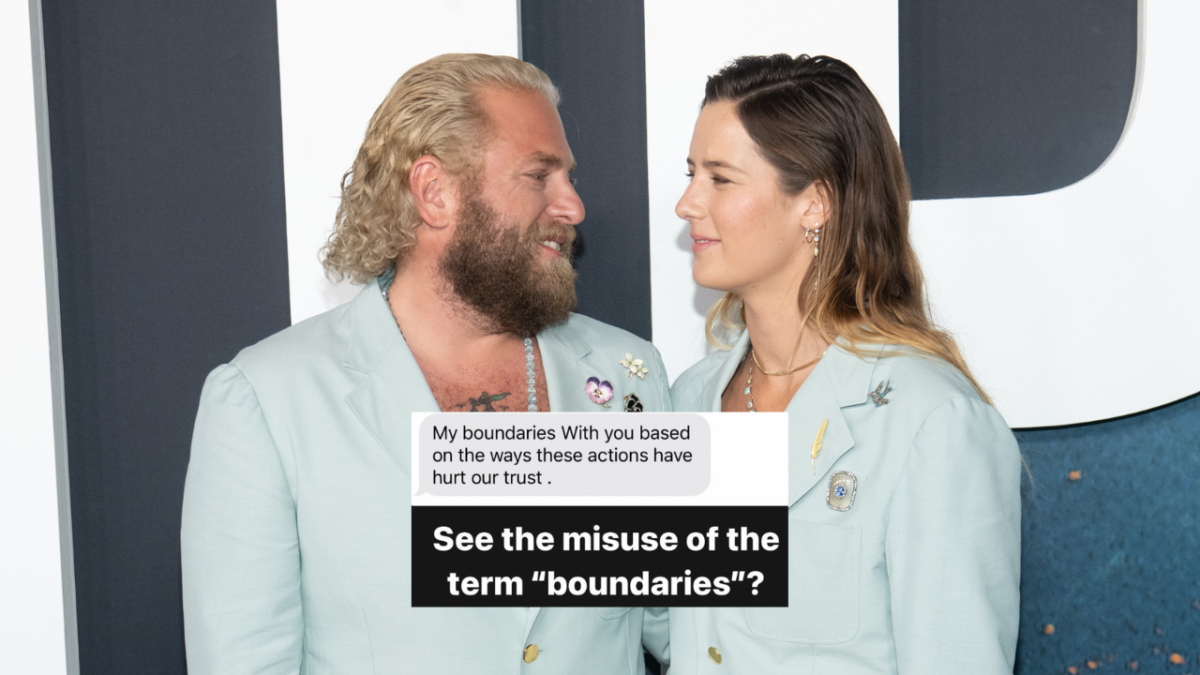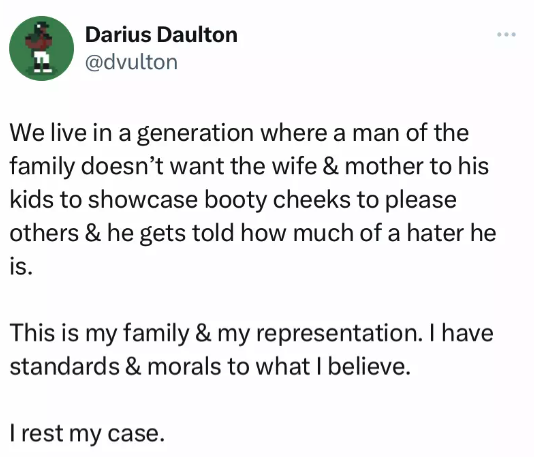
“Therapy speak” is a term plastered all over social media right now thanks to Jonah Hill, after his ex Sarah Brady shared some pretty cringe texts of his to the public amid accusations of emotional abuse in their relationship.
In the texts, Hill appeared to tell Brady she shouldn’t surf with men (she’s an avid surfer and was when he met her), that she shouldn’t post photos of herself in bikinis (pictures she claims he once complimented), and that she shouldn’t have friendships he doesn’t approve of.
Crucially, these unrealistic expectations were framed as “boundaries” which were to be respected for Hill’s mental health and their relationship.

In other texts, Hill accused Brady of breaking his trust by screenshotting a message he had sent, something he claimed he’s needed much therapy for in the past. There’s a lot of woundedness in those messages — from Hill. Brady, apparently, is not allowed to behave like a victim.
The texts have triggered backlash from (mostly) women who have accused Jonah Hill of weaponising “therapy speak” they believe he picked up in his long history of seeking psychological support to gaslight Brady into meeting his needs.
Already, in that sentence, you may have noticed a bunch of buzzwords: “weaponising”, “gaslight”, “needs”.
While those words are associated with TikTok videos of people giving each other advice, they actually are not terms typically used in therapy — and it’s really important we make that distinction.
Writer Daisy Jones reached out to psychologists for a column in The Guardian, who confirmed to her that Hill’s “therapy speak” was definitely not something they or any other respectable therapist would really be discussing with a client. In fact, they dismissed these terms as “psychobabble”.
“Therapy is about finding the right words between you and the person you are working with: hearing her or his or their words, and the inflections and timbres and being aware of what is and can’t be said,” psychotherapist Susie Orbach told The Guardian.
Essentially, she stressed that therapists will discuss your behaviour and feelings with you — not anyone else’s.
Which brings me to this discussion of “boundaries” in the first place — one that’s gotten pretty messy on social media lately, not just because of Jonah Hill, but also because of Keke Palmer and Darius Jackson.


Jackson, the father of Palmer’s child, publicly shamed her for wearing a revealing outfit on Twitter and then, after he was called out for it, defended himself by claiming he was just asserting his personal boundaries. Sound familiar?
If you actually look up the definition of “personal boundaries”, the first result to pop up on Google is from the University of California, Berkley which defines it as: “the limits and rules we set for ourselves within relationships“.
Elsewhere online, the definitions seem to be pretty similar. A New York Times article clarifies that personal boundaries are established by changing your own response to situations — NOT expecting other people to change their behaviours to comply with your “boundary”.
So, enforcing a personal boundary could be leaving the room when someone does something you don’t like, or politely declining an invitation to an event you don’t approve of. Or, you know, choosing not to date someone who doesn’t behave in a way you’d like from a partner in the first place, instead of forcing them to meet those expectations.
If you’re with someone who tries to extinguish the light you bring into this world by making you become something they’re more comfortable with, you need to leave. They will not get better. Your life will become very miserable very quickly. Walk away. /end.
— Dr Una McIlvenna 💀🎶 (@UnaMcIlvenna) July 10, 2023
Demanding someone stop a behaviour or punishing them for it, though, is NOT how you enforce a personal boundary, because it never involves controlling someone else.
It’s important we understand that this shit isn’t real therapy speak, or based in any psychologist’s advice, because that then destroys the legitimacy of texts like the ones Hill sent, or tweets like the one Jackson posted — it forces men like these to take responsibility for their behaviour and words, instead of excusing them under the guise of mental health or personal boundary setting.
Image: Getty Images / Michael Ostuni, Patrick McMullan



